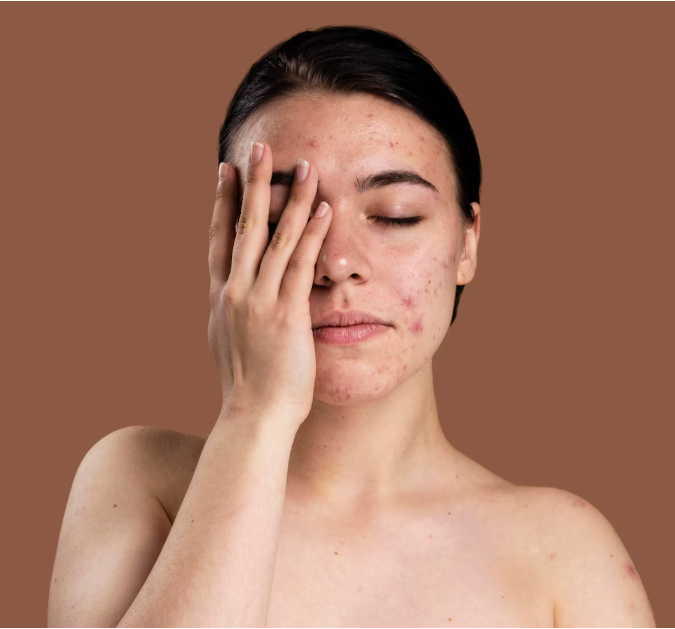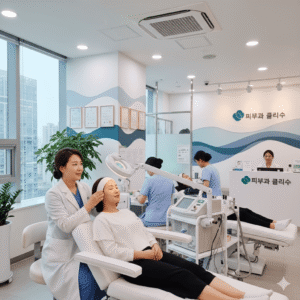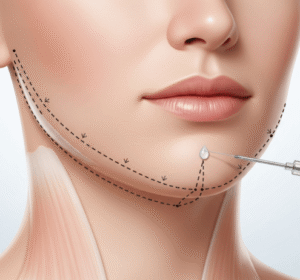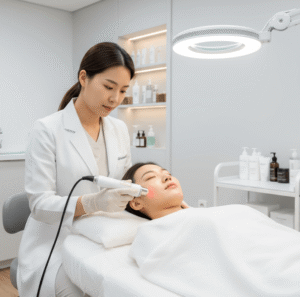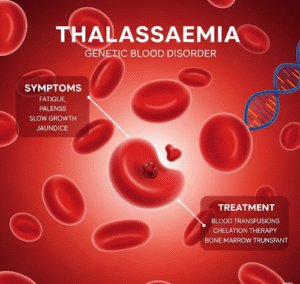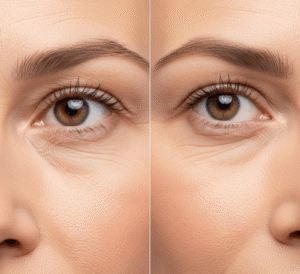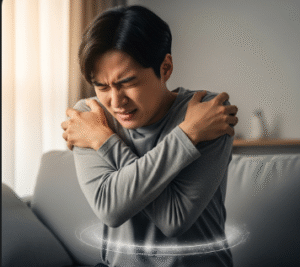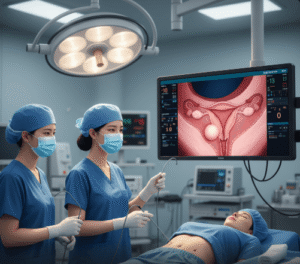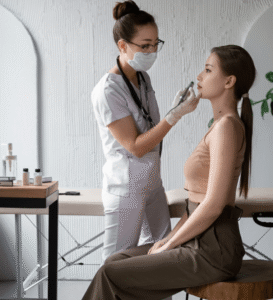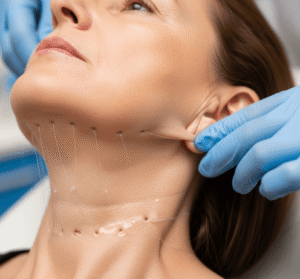Overview
Cystic acne is a severe form of acne characterized by deep, inflamed, and painful cysts beneath the skin. Unlike mild acne, cystic acne can cause scarring and significant psychological distress if untreated. In Korea, dermatology clinics provide advanced treatments, including topical, oral, and procedural interventions to manage cystic acne effectively.
What is Cystic Acne?
Cystic acne occurs when hair follicles become clogged with oil, dead skin cells, and bacteria, leading to inflammation deep within the skin. This condition is more severe than typical acne vulgaris and can persist for months or years without proper treatment.
Symptoms
Cystic acne can manifest on the face, chest, back, and shoulders and includes:
- Large, red, painful cysts and nodules
- Pus-filled lesions
- Swelling and tenderness around affected areas
- Scarring and dark spots (post-inflammatory hyperpigmentation)
Causes
- Excess sebum (oil) production
- Hormonal fluctuations (especially during puberty, menstrual cycles, or PCOS)
- Bacterial infection with Propionibacterium acnes
- Genetic predisposition
- Certain medications (e.g., corticosteroids, lithium)
Risk Factors
- Adolescents and young adults
- Family history of severe acne
- Hormonal disorders such as polycystic ovary syndrome (PCOS)
- Stress and lifestyle factors
Complications
- Permanent scarring (atrophic or hypertrophic)
- Hyperpigmentation
- Skin infections from ruptured cysts
- Psychological impact: anxiety, depression, and reduced self-esteem
Prevention
- Regular skin cleansing with gentle products
- Avoid picking or squeezing acne lesions
- Balanced diet and hydration
- Managing stress levels
- Early dermatological consultation for severe acne
Treatment Options in Korea
South Korea provides comprehensive dermatological care for cystic acne, combining medical, cosmetic, and procedural therapies:
- Medications
- Topical treatments: retinoids, benzoyl peroxide, antibiotics
- Oral antibiotics: doxycycline, minocycline for bacterial control
- Hormonal therapy: oral contraceptives or anti-androgens for hormone-related acne
- Isotretinoin: for severe, resistant cases
- Procedural Treatments
- Intralesional corticosteroid injections for inflamed cysts
- Chemical peels or laser therapy to reduce scarring
- Light-based therapies to target acne-causing bacteria
- Dermatology Clinics and Hospitals
- Major facilities in Seoul, Busan, and other cities offer multidisciplinary dermatology services, including Seoul National University Hospital, Samsung Medical Center, and Asan Medical Center.
- Patient Support and Follow-Up
- Continuous monitoring of skin response to treatment
- Scar management and cosmetic procedures if necessary
- Lifestyle counseling for long-term skin health

